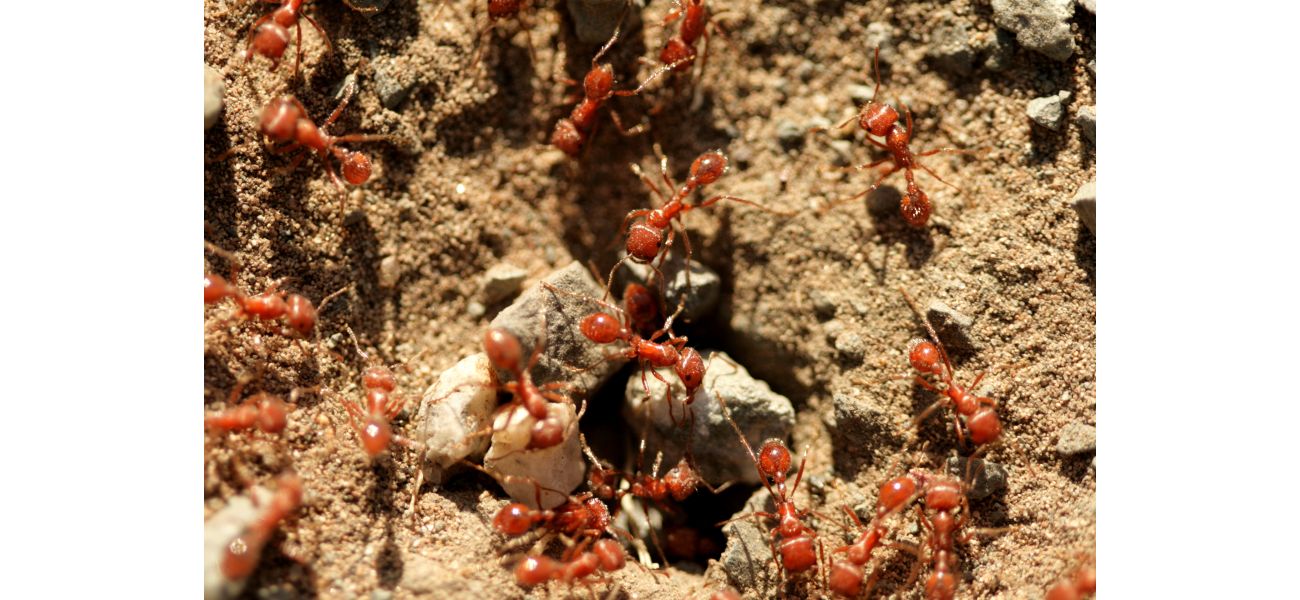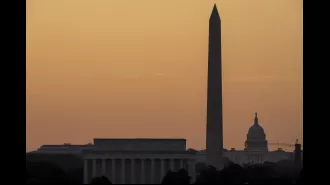Deadly insects found in New South Wales following shipment of grass
Experts caution that the recent discovery could lead to a catastrophic situation for the country.
November 14th 2024.

The discovery of red imported fire ants in northern New South Wales has caused quite a stir. It appears that these pesky creatures snuck their way into the area by hitching a ride on a delivery of lawn turf from south-east Queensland. The incident was first reported by a landscaping contractor who was installing pallets of turf in the Byron Bay Shire. The NSW Department of Primary Industries immediately sprung into action, sending their biosecurity team and detection dogs to the site for further investigation.
After collecting samples and conducting tests, the report was confirmed to be true. This news has prompted the state to take swift action in order to prevent the spread of these invasive species. Both the turf supplier and the landscaping contractor have been issued biosecurity directions to restrict the movement of lawn materials. The necessary steps are being taken to eradicate the fire ants and eliminate the threat they pose to the local ecosystem.
The National Fire Ant Eradication Program, along with the Queensland-based lawn turf supplier, is currently investigating how the fire ants were able to bypass the appropriate documentation that stated the turf had been treated before being transported across the border. This is the second occurrence of red imported fire ants being detected in New South Wales this year, with previous sightings in Wardell and South Murwillumbah. Fortunately, biosecurity teams were able to eradicate the nests and continue to monitor and treat the affected areas.
Reece Pianta, the Advocacy Manager for the Invasive Species Council, has expressed his concerns about the growing presence of fire ants in suppression zones. He has called on the state government to take immediate action and conduct a thorough compliance check to prevent the spread of these dangerous insects. He has also urged Queensland Premier David Crisafulli to prioritize strengthening the fire ant eradication program within his first 100 days in office.
It is alarming to note that fire ants have no natural predators in Australia and are capable of causing significant damage to the environment by displacing or killing native plants and animals. According to Pianta, they are one of the world's worst super pests and if left unchecked, their economic impact could surpass that of other notorious pests such as cane toads, rabbits, feral cats, and foxes combined. This is why it is crucial to eradicate them completely, rather than just reducing their population.
The NSW Department of Primary Industries has strict regulations in place to prevent the movement of material from control areas. Anyone found breaching these emergency biosecurity orders could face hefty penalties of up to $1.1 million for individuals and up to $2.2 million for corporations. It is vital for everyone to be aware of these restrictions and cooperate with the authorities to contain the spread of these tiny killers. The consequences of not taking action could be catastrophic for both humans and animals alike.
After collecting samples and conducting tests, the report was confirmed to be true. This news has prompted the state to take swift action in order to prevent the spread of these invasive species. Both the turf supplier and the landscaping contractor have been issued biosecurity directions to restrict the movement of lawn materials. The necessary steps are being taken to eradicate the fire ants and eliminate the threat they pose to the local ecosystem.
The National Fire Ant Eradication Program, along with the Queensland-based lawn turf supplier, is currently investigating how the fire ants were able to bypass the appropriate documentation that stated the turf had been treated before being transported across the border. This is the second occurrence of red imported fire ants being detected in New South Wales this year, with previous sightings in Wardell and South Murwillumbah. Fortunately, biosecurity teams were able to eradicate the nests and continue to monitor and treat the affected areas.
Reece Pianta, the Advocacy Manager for the Invasive Species Council, has expressed his concerns about the growing presence of fire ants in suppression zones. He has called on the state government to take immediate action and conduct a thorough compliance check to prevent the spread of these dangerous insects. He has also urged Queensland Premier David Crisafulli to prioritize strengthening the fire ant eradication program within his first 100 days in office.
It is alarming to note that fire ants have no natural predators in Australia and are capable of causing significant damage to the environment by displacing or killing native plants and animals. According to Pianta, they are one of the world's worst super pests and if left unchecked, their economic impact could surpass that of other notorious pests such as cane toads, rabbits, feral cats, and foxes combined. This is why it is crucial to eradicate them completely, rather than just reducing their population.
The NSW Department of Primary Industries has strict regulations in place to prevent the movement of material from control areas. Anyone found breaching these emergency biosecurity orders could face hefty penalties of up to $1.1 million for individuals and up to $2.2 million for corporations. It is vital for everyone to be aware of these restrictions and cooperate with the authorities to contain the spread of these tiny killers. The consequences of not taking action could be catastrophic for both humans and animals alike.
[This article has been trending online recently and has been generated with AI. Your feed is customized.]
[Generative AI is experimental.]
0
0
Submit Comment





